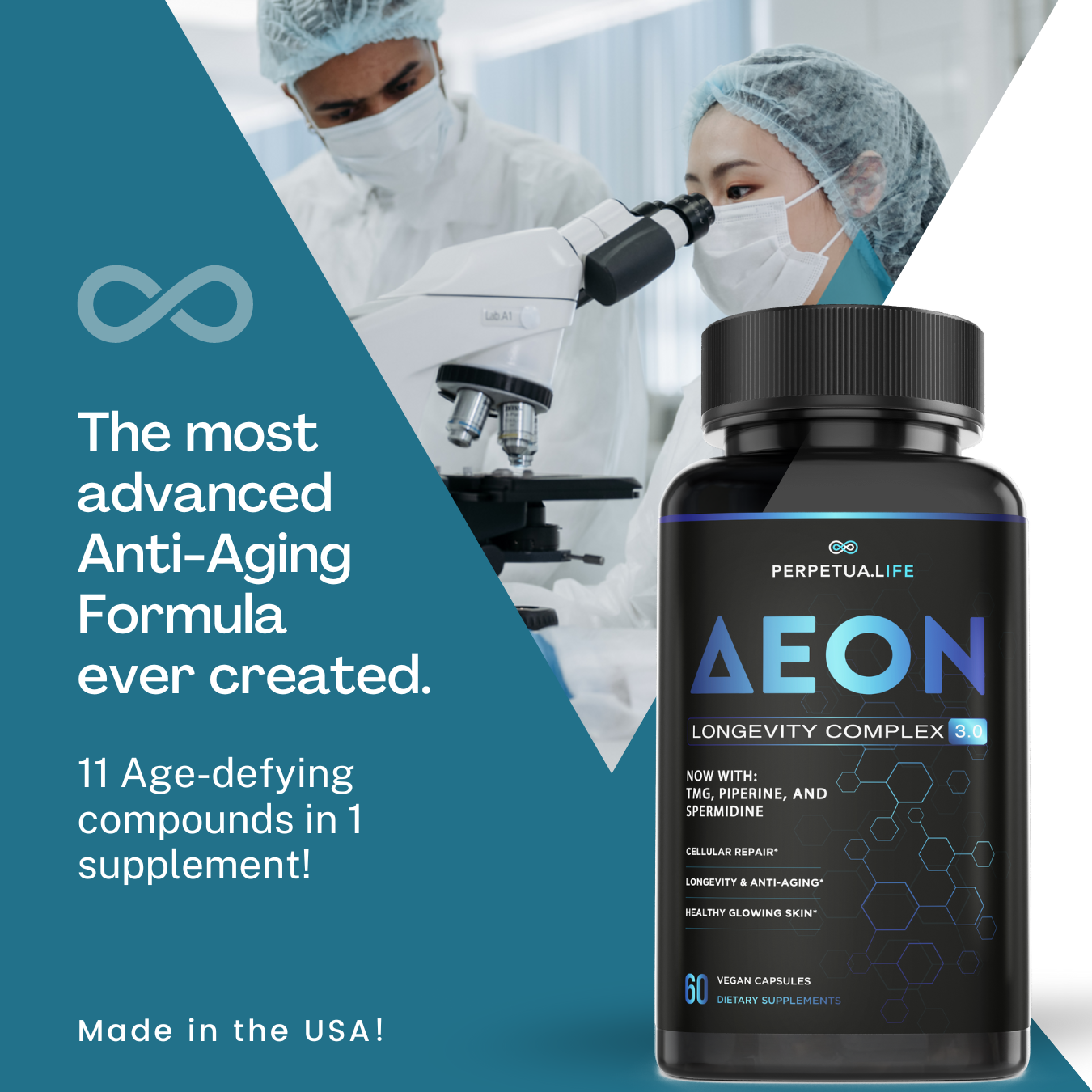
Live a Longer, and Healthier Life!
A recent study has shown supplementing with Nicotinamide, and Resveratrol may help reverse age-related decline, and support healthy aging.
Many users experience increased energy, vitality, and and overall enhanced sense of wellbeing.
AEON combines Nicotinamide, Resveratrol AND adds 8 other age defying compounds in one affordable product!
Longevity Essentials:
-
NAD+ Liposomal Anti Aging Supplement Complex AEON Black & White Bundle
Regular price $84.99 USDRegular priceUnit price / per$99.00 USDSale price $84.99 USDSale -
NAD+ NMN Liposomal Anti Aging Supplement Complex AEON with Nicotinamide DUO™
Regular price From $59.00 USDRegular priceUnit price / per$79.00 USDSale price From $59.00 USDSale -
NAD+ NMN Liposomal Anti Aging Supplement Complex AEON White with Curcumin, and AKG
Regular price $59.99 USDRegular priceUnit price / per$79.00 USDSale price $59.99 USDSale -
Urolithin-A Liposomal 1,000mg
Regular price $59.00 USDRegular priceUnit price / per$79.00 USDSale price $59.00 USDSale -
Magnesium Complex Gummies with L-Threonate, Glycinate, Citrate, Sulfate, and Oxide
Regular price $29.00 USDRegular priceUnit price / per$49.00 USDSale price $29.00 USDSale -
Lion's Mane Gummies - w Turkey Tail and 9 other Premium Mushrooms.
Regular price $24.99 USDRegular priceUnit price / per$49.00 USDSale price $24.99 USDSale -
Ashwagandha Gummies Double Strength - 600mg
Regular price $18.99 USDRegular priceUnit price / per$29.00 USDSale price $18.99 USDSale -
Novaxidil Triple Therapy Hair Regrowth Foam
Regular price $119.00 USDRegular priceUnit price / per$149.00 USDSale price $119.00 USDSale -
Creatine Monohydrate Gummy Bears Low-Sugar
Regular price $39.00 USDRegular priceUnit price / per$45.00 USDSale price $39.00 USDSale
Perpetua Life® Biotech is a Research & Development firm specializing in Longevity.
Since 2019 Perpetua Life® has focused its research on developing products to help delay human aging. This has not been an easy task but with your help we've quickly become an industry leader!










